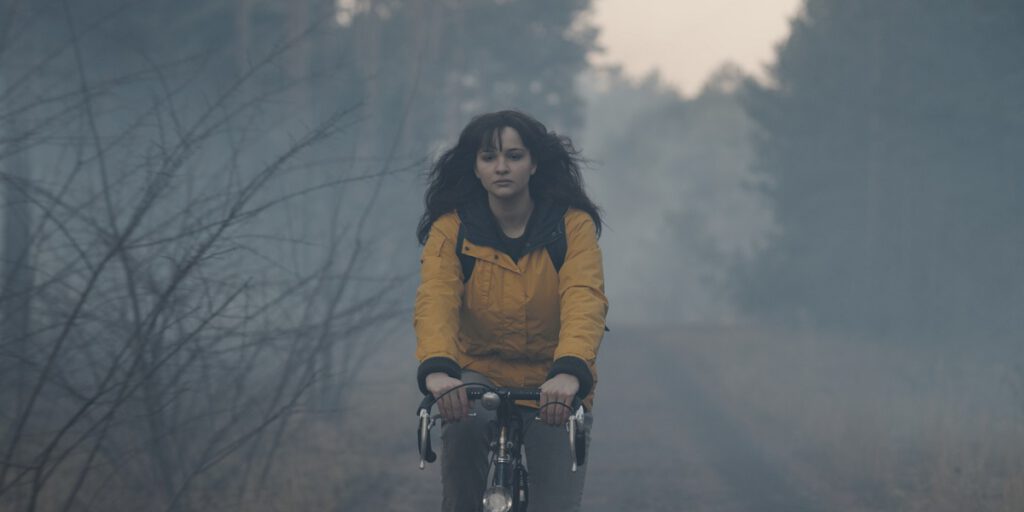“What we know is a drop. What we don’t know is an ocean.”
Taken from its final season, this is a fitting way to describe “Dark,” the first German Netflix original, a show that blasts you with multiple timelines, interconnected family trees, and more questions than you can hope to answer. The conclusion to this three-season series rages against the pain, death, and destruction that a few of its characters have preached, opting for love, connection, and the pricelessness of taking away someone’s pain. From beginning to end, “Dark” caused viewers to argue and theorize through the night, and the final season enabled that connected experience even as the world fell apart around it. It’s become an excuse for all of us to hop on the line and talk about “Dark,” but also to catch up as we grow into adulthood, much like the group of teenagers in Winden.
“Dark” premiered on Netflix in 2017 (looking initially like a German “Stranger Things”), and centered around a nuclear power plant in a small town, a group of wily teenagers attempting to save the world, and a sense of foreboding hovering around this world created by Baran bo Odar and Jantje Friese. “Dark” started as a mystery of a missing boy, and then transformed into a story focused on the precious nature of time, the heartbreaking realizations of love, and the knot-like connection between our friends, our family, our decisions, and every person that floats in and out of our lives.

Season three picks up right where season two left off, with Jonas (Louis Hofmann) and Martha (Lisa Vicari) beginning another journey. After Jonas’ version of her gets shot, a new, and much sleeker, Martha whisks Jonas away to an alternate world, one in which he’s never been born. In this second world, there’s still an apocalypse, yet Martha is the main character of this universe, as seen by her wearing Jonas’s yellow rain jacket, a signifying thread throughout the series. Jonas must race, and decide to, stop the impending doom, and convince several groups of people that all the events in seasons one and two were feasible, giving audiences a refresher as well.
Spanning three centuries and multiple past and present versions of each character, “Dark” demands attention. You can’t look down at your phone, be on your computer, be making dinner, or have any sense of detachment in order to fully enjoy the show. At one point, we see four versions of the same person in the same room. It’s a challenging journey that the showrunners are forcing you to experience, pushing you to play catchup right alongside these townspeople.
The season-three set pieces are gorgeous, as the German show remains fantastic on a technical level. The camerawork goes from feeling hectic and nervy to slow, steady, and measured several times throughout each episode. It’s disorienting, just like the layered narrative it’s depicting. Hoffman’s performance continues to be top-tier, especially from a young actor. Every stare he gives has the weight of two seasons, and hundreds of lifetimes he’s now lived. The score brings a constant dread and impending doom, which in the “Dark” universe, rarely fades into the background.

Season three jumps into the brutality of the post-apocalyptic world when it has the time, but the central story focuses on Jonas and Martha, and their unbreakable love. The most violent of all three seasons, this closing eight-episode season introduces new characters, including a man who travels with the child and old man versions of himself, follows biblical themes with Adam and Eva, and says goodbye to these residents of Winden in a striking and powerful way, both in terms of visuals and meaning. Harping on the dichotomies of life, like light and shadow, good and evil, life and death, the series concludes as an ode to attachment and connection to others.
The pursuit of truth and the overwhelming feelings of loss that permeate our lives, especially over the last six months, are found in heaps in the sci-fi drama, one that has only grown with each season. I found myself cheering with tears in my eyes, reflecting on the end of this insane journey, but also about my own loss of innocence and friendship in the last three years. “Dark” gave me closer friendships, enjoyable time with my older brother, and expanding ideas about the world’s infinite nature. It’s a show that’s better watched with others, since there’s nothing like being confused together, with your shared only hope to figure out what’s going on. Shared confusion as to how to get through the next day, week, or month is one of 2020’s most defining traits.
As Eva says, “In reality, we’re all just fractions of an infinite whole,” and this whole is much better with “Dark” in it. Few sci-fi shows can pull off the balancing act of keeping audiences guessing, on the edge of their seats, yet not confusing them. One of the most mind-melting shows on television, and possibly the most unique Netflix original, “Dark” finishes its run with peak writing, shocking conclusions, and a bittersweet sense of finality.
Whole season screened for review.











